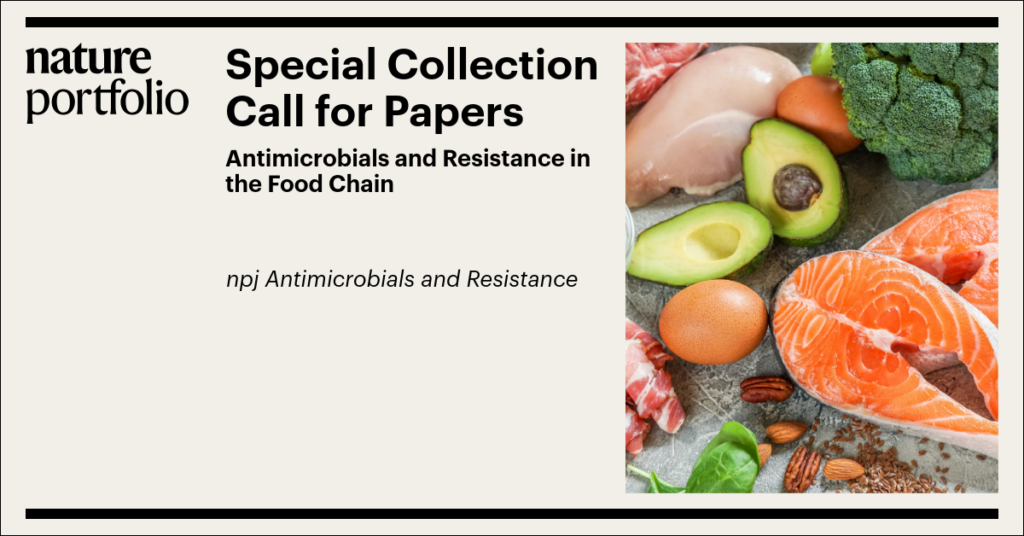Special Collection: Antimicrobials and Resistance in the Food Chain
We are proud to announce a collaboration with npj Antimicrobials and Resistance on a special collection titled “Antimicrobials and Resistance in the Food Chain.” This important initiative represents a significant opportunity for researchers and stakeholders across the agrifood sector to share evidence and perspectives on antimicrobial resistance challenges and solutions.

About the Collection
This special collection will focus on understanding and addressing antimicrobial resistance from a farm-to-fork perspective, aligning perfectly with AMAST’s transdisciplinary mission. The collection recognises that while many sectors within agrifood systems have successfully reduced or optimised antimicrobial use while maintaining animal health and welfare, there remains a critical need for further knowledge and evidence on how antimicrobial use may create resistance risks shared between agrifood systems, the environment, and human health.
Scope and Topics
The collection welcomes submissions that provide evidence and perspectives on:
- The emergence and transmission of antimicrobial resistance in agrifood environments and systems
- Relationships to other connected sectors (e.g., human health, One Health integration)
- Practices and interventions that seek to reduce antimicrobial use while effectively controlling disease in food-producing animals
- Agricultural innovations and technologies supporting new insights on antimicrobial use and data-driven decision-making
- Economic and behavioral dimensions of AMR mitigation
- Surveillance and data integration approaches that overcome challenges in data sharing
- Implications of sustainability and environmental stewardship policies on antimicrobial use and resistant organism reservoirs
Submissions may draw from studies involving cross-sectoral collaboration, systems-based approaches, microbiology, veterinary science, crop science, epidemiology, food business perspectives, consumer research, and agrifood economics—reflecting the truly transdisciplinary nature of effective AMR research.
How to Participate
Researchers interested in contributing to this collection should prepare manuscripts according to the journal’s guidelines. Submissions will be welcomed until 8 January 2026.
Why This Matters
This collection represents a valuable opportunity to highlight the important work being done across the UK and globally to address antimicrobial resistance in food systems. By bringing together diverse perspectives and approaches, we can develop more effective strategies for mitigating AMR while ensuring food security, animal welfare, and environmental sustainability.
As AMAST continues to build its transdisciplinary community connecting researchers, industry stakeholders, and policymakers, we encourage our members to consider contributing to this important collection. Together, we can advance our understanding of AMR challenges and develop evidence-based solutions that benefit all sectors.
For more information about the collection or to discuss potential submissions, please get in touch.
View the flyer with full call for papers or visit the npj Collections website.
The AMAST (AMR in Agrifood Systems Transdisciplinary) Network brings together actors from diverse backgrounds across agrifood systems to co-develop solutions to AMR challenges through collaboration, dialogue, and action.
